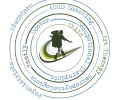ADHD, Anxiety, or Both?
Anxiety is common in kids with ADHD. According to a CDC study 2016, about 3 in 10 children with ADHD experience anxiety. Many of the challenges that come with ADHD can make kids anxious. It can be difficult to determine whether a child has ADHD or Anxiety because there’s so much overlap in symptoms. Here are some common similarities and differences between how ADHD and Anxiety look in children.
| ADHD | BOTH | ANXIETY |
| Disorganization
Kids with ADHD tend to struggle with disorganization due to their weakness in executive functioning. |
Trouble paying attention. Kids with anxiety may seem unfocused, but they are really distracted by worries. Kids with ADHD are inattentive because of differences in the brain that affect focus. | Perfectionism
Kids with anxiety may become stuck on a task with schoolwork because they don’t believe it is their best effort. |
| Impulsivity
Kids with ADHD can display impulsivity at any point in the day, without a pattern or trigger. |
Fidgety
Kids with anxiety may have nervous energy and could mindlessly tap their foot or pencil. Kids with ADHD fidget because of hyperactivity and thephysical need to move their bodies. |
Physical Symptoms
Kids with anxiety may develop physical symptoms such as racing heart, headaches, rapid breathing, and stomachaches. |
| Inattentive mistakes
Kids with ADHD often fail to pay close attention to details and miss portions of school assignments. |
Incomplete Assignments or Missing Schoolwork
Kids with anxiety might not understand the work and can be too anxious to ask for help. Kids with ADHD often don’t turn in assignments because of executive functioning weaknesses and forgetfulness. |
Irritability
Kids with anxiety may experience flooding of thoughts. When negative anxious thoughts are occupying their minds and someone tries to talk to them, they may quickly snap. It is not easy to pause d display a calm demeanor. |
| Physical behaviors
Kids with ADHD often impulsively touch others either in fun or anger and do so without planning or thinking about their actions. |
Struggle with friendships. Kids with anxiety might be too fearful of being embarrassed in social situations to make friends. Kids with ADHD might have trouble making friends because their impulsivity may make them stand out negatively to peers. Or, they may struggle picking up on social cues because of inattention. | |
| Trouble falling asleep
Kids with anxiety can have trouble falling asleep because their minds are restless with worries. Kids with ADHD can have trouble settling their bodies at bedtime. |
What’s next?
It is always important to seek professional guidance to determine if it is ADHD, anxiety or both? Professional testing with a neuropsychologist or psychiatrist can tease out the root cause of the symptoms and direct the treatment plan. Treatment may include medication, cognitive behavioral therapy, coaching, or alternative treatments, but it will vary based on the primary cause of the symptoms.
Want to learn more? Sign up for our newsletter and receive our Executive Functioning ARTGuide! https://www.navigatingadhd.com/join-mailing-list-receive-free-gift/









